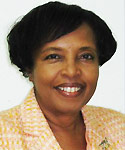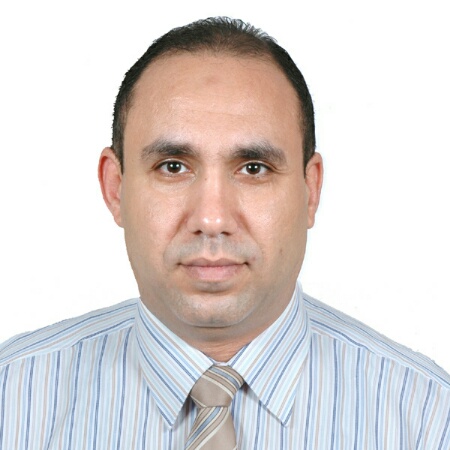Theme: Acquainting Preventive & Advancing Strategies of Obesity & Endocrinology
Obesity Middle East 2018
Middle East Obesity, Bariatric Surgery and Endocrinology Congress welcomes every one of the members from everywhere throughout the world to go to amid June 25-26, 2018 in Dubai, UAE which incorporates Obesity Symposiums, Obesity Workshops, Endocrinology workshops, Oral, Poster introductions and Exhibitions. Obesity and Endocrinology Conferences 2018 is a worldwide stage to talk about and find out about Weight Management, Childhood Obesity, Obesity Medicine, Endocrinology, Bariatric Surgery, Scientific gatherings and the field of Obesity. The two days of conference contributes active discussions on recent advancements and new strategies for development of new materials for global requirements.
Middle East Obesity 2018 gathering highly informative and interactive sessions to strengthen the exchange of ideas across a wide range of disciplines in the field of Obesity, Bariatric Surgery and Endocrinology.
Obesity has become a major problem in the UAE. Obesity is on the rise globally and UAE is not faring well compared to other countries. The UAE ranks third in the Middle East of the countries with the greatest prevalence of obesity, with 37 per cent of residents classed as obese. More than 36 per cent of men and 30 per cent of women in Abu Dhabi and Dubai are overweight, with 11.9 per cent people being obese, a health survey has reported. The number of overweight or obese adults and children has continued to increase and is a trend that is not slowing down.
Middle East Obesity 2018 is anticipating participants from 40 and more countries across the globe and the two days conference will provoke plenary sessions, Keynote speeches, Poster, and Oral presentations. These two days of conference contributes two days of active discussions on recent advancements and new strategies for development of new materials for global requirements.
Target Audience:
Obesity specialists
Endocrinologists
Bariatric surgeons
Basic Clinical Research Scientists & Students
Yoga & Fitness Professionals
Nutritionists
Dieticians
Physical Therapists
Students
Industry Professionals
Medical Colleges
Obesity & Endocrinology Associations and Societies
Business Entrepreneurs
Health Promoters
Fitness Professionals
Public Health Professionals
Track: Obesity and Its Causes
Obesity is a chronic condition in which excess body fat has accumulated in the body. Obesity is defined by using the body mass index(BMI). People with a body mass index over 30 are considered obese. Obesity increases the risk for heart disease. It can lead to diabetes, cancer, high blood pressure, heart disease, gallstones, and other chronic illnesses. Obesity has also been linked to increased risk for a number of cancers. Obesity is most commonly caused by a combination of excessive food intake, lack of physical activity, and genetic susceptibility. Changes to diet and exercising are the main treatments. Obesity occurs when people regularly eat more calories than they burn. The cause of obesity includes a lack of physical activity and sleep. Body weight is the result of a combination of influences genetic, metabolic, behavioral, environmental, cultural, and socioeconomic influences. Therefore behavioral and environmental factors provide the greatest "opportunity'' for action and intervention. Obesity Congress gathers a highly informative and interactive session in the field of Obesity, Bariatric Surgery, and Endocrinology.
Track: Childhood Obesity and Effects
Childhood obesity is a serious therapeutic condition that is affecting children and adolescents. Children at or above the 95th percentile have obesity. Many obese children become obese adults, especially if one or both parents are obese. The early physical impacts of obesity in adolescence incorporate, the greater part of the child’s organs being influenced, hepatitis, sleep apnoea, gallstones and increased intracranial pressure. Childhood obesity can also result in severe conditions including diabetes, high blood pressure, heart disease, sleep problems, cancer, and other disorders like liver disease, early puberty or menarche, eating disorders such as anorexia and bulimia, skin infections, and asthma and other respiratory problems. Childhood obesity is prevented by choosing healthier foods and limiting unhealthy foods. Physical activity is also very important for reducing childhood obesity. Obesity Meetings gets driving and experienced Metabolic and Bariatric Surgeons, Registered Dieticians and Diabetes Educators, Fitness Professionals and Health Promoters and some more.
Track: Obesity During Pregnancy
Obesity in pregnancy can affect health later in life for both mother and child. Gaining too much weight during pregnancy or being overweight or obese, is also risky. Obesity during pregnancy increases the risk of various pregnancy complications, Such as Gestational diabetes, Preeclampsia, Infection, and Pregnancy Loss. Children born to overweight or obese mothers have higher rates of childhood obesity and childhood metabolic syndrome. Losing weight before you become pregnant is the best way to decrease the risk of problems caused by obesity. Obese women have an increased risk of miscarriage compared with women of normal weight. Babies born to obese women have an increased risk of having birth defects, such as heart defects and neural tube defects. Macrosomia—In this syndrome, the child is larger than average. This can enhance the risk of the child being injured during birth. Macrosomia also enhances the risk of cesarean delivery. Infants born with an excess amount of body fat have a greater chance of being obese later in life. Losing weight before becoming the pregnant is the best way to reduce the risk of problems caused by obesity. Obesity Conferences focus on policy and environmental strategies to make healthy eating and active living accessible and affordable for everyone.
Track: Obesity and Cognitive Function
Obesity is thought to affect both the CNS and the PNS. Obesity appears to negatively affect the CNS, particularly cognitive function. There is a strong association between obesity and dementia, including Alzheimer’s disease. Obesity has been shown to double the risk of Alzheimer’s disease and a high body-mass index (BMI) is linked to increased risk of dementia. Similarly, individuals with severe obesity can suffer from a mild cognitive impairment. Negative effects of obesity on the PNS include autonomic dysfunction and polyneuropathy. Polyneuropathy is defined as sensory loss, typically starting with the feet and eventually affecting the hands. One of the most common causes of polyneuropathy is type 2 diabetes. Lifestyle treatments include dietary modifications and exercise and have proven effective at improving metabolic and cognitive function.
Track: Genetics of Obesity
Obesity is very heritable. Obesity can be a complicating disorder resulting from the interactions of a wide variety of hereditary and environmental factors. Polymorphisms in various genes controlling appetite and metabolism predispose to obesity under certain dietary conditions. One gene mutation, the melanocortin 4 receptor, may be responsible for tens of thousands of cases of obesity. Monogenic type of genetic mutation can result in severe forms of obesity that run in families. Occurrences of monogenic kinds of overweight are evidence that obesity may be caused by genetic mutations. The most common forms of obesity are probably the result of variations in a large number of genes. The Obesity Meeting 2018 highlights the evolving strategies for Obesity, Weight loss-management, childhood obesity, physical therapy, exercise, bariatric surgery and upcoming challenges in field of Medicine & Healthcare.
Track: Obesity and Cardiovascular Disease
Obesity is a risk marker for cardiovascular disease. The major effects of obesity on cardiovascular (CV) health are mediated through the risk of metabolic syndrome (insulin resistance, dyslipidemia, and hypertension), such that an absence of these risk factors in obese individuals may not be associated with increased mortality risk. Obesity is associated with an increased risk of morbidity and mortality as well as reduced life and expectancy. Men are apt to develop visceral type obesity while women develop the peripheral type. Corticosteroids and growth hormone also tend to develop visceral obesity. Obesity Congress gathers a highly informative and interactive session in the field of Obesity, Bariatric Surgery, and Endocrinology.
Track: Obesity and Nutrition
The most common causes of obesity and overweight are eating excessive fat-containing foods and lack of nutritional intake. Good nutrition, physical activity, and a healthy body weight are essential parts of a person’s overall health and well-being. Together, these can help decrease a person’s risk of developing serious health conditions, such as high blood pressure, high cholesterol, diabetes, heart disease, stroke, and cancer. A healthful diet, regular physical activity, and achieving and maintaining a healthy weight also are paramount to managing health conditions so they do not worsen over time.Nutritional Conferences interprets the interaction of nutrients and other substances in food in relation to maintenance, health, and disease of an organism.
Track: Obesity and Diabetes
Obesity is particularly associated with an enhanced risk of developing Diabetes Mellitus 2. Both being overweight with enhanced abdominal fat and being obese is thought to contribute about 80 to 90 percent of all DM2 development. Women with a BMI of 23 to 25 have a four-fold higher risk of type 2 diabetes than those with a BMI less than 20. Without the intercession of a healthy diet and proper exercise, obesity can lead to type 2 diabetes over a generally short period of time. The good news is that decreasing your body weight, by even a small amount, can help improve your body's insulin sensitivity and reduce your risk of developing cardiovascular and metabolic conditions such as type 2 diabetes, heart disease and types of cancer. Obesity Conferences focus on policy and environmental strategies to make healthy eating and active living accessible and affordable for everyone.
Track: Weight Management
The optimal diet for prevention of weight gain, obesity, metabolic syndrome, and type 2 diabetes is fat-reduced, fiber-rich, high in low-energy density carbohydrates (fruit, vegetables, and whole grain products), and intake of energy-containing drinks is restricted. Weight management emphasizes the importance of healthy eating patterns that include a variety of nutrient-dense foods, limit portions of energy-dense foods, and reduce overall energy density. Weight loss is achieved by negative energy balance. This, in turn, is attained in most by the reduction in calorie intake rather than an increase in physical activity. Nutritional Conferences interprets the interaction of nutrients and other substances in food in relation to maintenance, health, and disease of an organism.
Track: Health, Behaviour & Environment
A combination of more physical activity and a suitable nutrient rich but energy controlled diet is recommended for overweight or obese adults who wish to lose weight. Regular physical activity reduces the risk for many diseases, helps control weight and strengthens muscles, bones, and joints. People are dependent on high fat and calorie, exceptionally attractive and modest sustenance. Behaviour is one of the elements affecting weight pick up. Learned practices like utilizing edibles to express love, eating by overlooking body signals prompt weight.The Obesity Meeting 2018 highlights the evolving strategies for Obesity, Weight loss-management, childhood obesity, physical therapy, exercise, bariatric surgery and upcoming challenges in the field of Medicine & Healthcare.
Track: Yoga and Neuropathy
Yoga and Neuropathy give a healthy approach to the treatment of obesity and comprehensive well-being. With yoga and naturopathy, it is easy to lose weight and maintain a healthy lifestyle, beneficial for physical and mental health. Yoga postures like Asanas, Pranayama, meditation and relaxation strategies are useful for weight reduction, decreasing of muscle versus fat and weight management. Shedding of overabundance fat and accomplishing perfect body can be accomplished by honing yoga. Naturopathy treats food as medicine and diet is an integral part of naturopathic treatments. Naturopathy provides a good diet and way of life counsel alongside a treatment timetable to diminish weight and tone up the body. Obesity Meetings gets driving and experienced Metabolic and Bariatric Surgeons, Registered Dieticians and Diabetes Educators, Fitness Professionals and Health Promoters and some more.
Track: Advanced Treatment for Obesity
Prosperity specialists like dieticians, direct counsel or a bulkiness power to appreciate and take off enhancements in eating and activity penchants. All weight programs require changes in eating Disorders and extended physical activity. The treatment systems that are right depends on the endless supply of heaviness, general prosperity and capability of an individual to understand weight lessening masterminds. Obesity Congress gathers a highly informative and interactive session in the field of Obesity, Bariatric Surgery, and Endocrinology.
Track: Gastroesophageal Reflux Disease
It is commonly known as heartburn. Backflow of gastric and /or duodenal substance into the oesophagus and past the lower oesophageal sphincter(LES), without related belching or vomiting. Reflux may cause manifestations or pathologic changes. Obesity is an important risk factor for GERD. Causes are dietary factor, lifestyle factor (Being overweight or obese), Medications (Aspirin, Ibuprofen, Beta blockers and Oestrogen). Obesity Congress gathers a highly informative and interactive session in the field of Obesity, Bariatric Surgery, and Endocrinology.
Track: Bariatric Therapy
Bariatric surgery is an operation that is performed keeping in mind the end goal to enable such people to get in shape. Bariatric surgery is to confine sustenance admission and diminishing the retention of nourishment in the stomach and digestion tracts. There are different sorts of bariatric surgeries that can be performed are Flexible Gastric Banding (AGB), Roux-en-Y Gastric sidestep (RYGB), Biliopancreatic redirection with a Duodenal Switch (BPD-DS) and Vertical Sleeve gastrectomy (VSG). Obesity Meetings gets driving and experienced Metabolic and Bariatric Surgeons, Registered Dieticians and Diabetes Educators, Fitness Professionals and Health Promoters and some more.
Track: Bariatric Surgery in Infertility
An obese woman is about thrice as liable to be infertile as a normal woman. The obese woman has a lower possibility of pregnancy as well as have brought down the shot following in vitro treatment. They require higher measurements of gonadotropins and have an expanded unsuccessful labor rate. Whenever possible, pregnancy should be delayed till weight loss stabilizes for 12 – 24 months after surgery. Weight loss is one of the cornerstones to achieve a healthy pregnancy and childbirth.Obesity Conferences focus on policy and environmental strategies to make healthy eating and active living accessible and affordable for everyone.
Track: Endocrinology
Endocrinology is the study of hormones. Hormones are essential for our every-day survival. Hormones control our temperature, sleep, mood, stress, growth and more. The endocrine system is assessed primarily by measuring hormone concentrations. It is also concerned with the integration of developmental events proliferation, growth, and differentiation, and the physiological or behavioral activities of metabolism, growth, and development, tissue function, sleep, digestion, respiration, excretion, mood, stress, lactation, movement, reproduction, and sensory perception caused by hormones. The endocrine system may have several glands in all parts of the body those secretes hormones. These hormones are responsible for performing several important functions in our body. if the behavior of hormones is not correct means it leads to cause hormonal imbalance, due to hormonal imbalance the endocrine glands can lead to cause several diseases like Diabetes, thyroid, …etc. The Obesity Meeting 2018 highlights the evolving strategies for Obesity, Weight loss-management, childhood obesity, physical therapy, exercise, bariatric surgery and upcoming challenges in field of Medicine & Healthcare
Track: Neuroendocrinology
Neuroendocrinology is the branch of medicine concerned with the interactions between the nervous system and the endocrinology system. The nervous and endocrine systems often act together to regulate the physiologic processes of the human body.
Human endocrine working has a strong foundation in the CNS, under the direction of the hypothalamus, which has coordinate control over the pituitary organ. The pituitary gland has two major lobes the anterior lobes (adenohypophysis) and posterior lobe called neurohypophysis. The pituitary gland sometimes called master gland.
Circadian rhythms in human follow a near 24hrs cycle and may influence a variety of regulatory function, including the sleep-wake cycle, body temperature direction example of action, for example, eating and drinking, hormone discharge. This is because of the pacemaker in the cerebrum which gets projections of light through the retina and invigorates electrical impulses to neurotransmitters for various functions.
Track: Endocrine regulation
The endocrine framework directs and keeps up different body works by integrating discharging hormones, synthetic dispatchers. The real regions of control and combination are responses to stress and damage, development. Development, assimilation of supplements, energy metabolism, water, and electrolyte adjust. Reproduction, birth, and lactation. Obesity Congress gathers a highly informative and interactive session in the field of Obesity, Bariatric Surgery, and Endocrinology.
Track: Paediatric Endocrinology
Pediatric endocrinology deals with endocrine-related conditions in children which also includes type 1 and type 2 diabetes, growth disorders, obesity, thyroid and adrenal problems, problems of puberty and many more. It also related to other conditions which are related to hormones. In children, their psychological needs are different from those of adults. Pediatric endocrinologists have pervasive training and proficiency in dealing with children and in treating children with endocrine disorders and hormonal problems. Nutritional Conferences interprets the interaction of nutrients and other substances in food in relation to maintenance, health and disease of an organism.
Track: Clinical Endocrinology & specialized topics in Clinical Endocrinology
Clinical endocrinology deals with the study of the endocrine system its function, diseases and abnormalities related to a patient. The endocrine system is defined that the organs in the body which further release hormones that use to regulate many of the body’s functions, like testes & ovaries, pancreas, the pituitary gland, and thyroid gland. The individuals which are specialized in clinical endocrinology are highly trained physicians. Extra Specialized topics, on which clinical endocrinology concentrates, like thyroid disorders, hormone disorders of various types can be treated by endocrinologists. Problems while estrogen of progesterone production in the female body may cause symptoms like decreased fertility. Some endocrinologists specialized in fertility medicine. The Obesity Meeting 2018 highlights the evolving strategies for Obesity, Weight loss-management, childhood obesity, physical therapy, exercise, bariatric surgery and upcoming challenges in the field of Medicine & Healthcare.
Market Analysis:
Globally, more than 1 billion people are above an ideal weight. Diseases such as diabetes, heart disease, and cancer all have links to being overweight or obese. More than 100 million people in the United States are actively involved in a weight reduction or weight management plan at any one time throughout the year. The prevalence of overweight and obesity is commonly evaluated by using body mass index (BMI). A BMI over 25 kg/m2 is characterized as overweight, and a BMI of over 30 kg/m2 as obese.
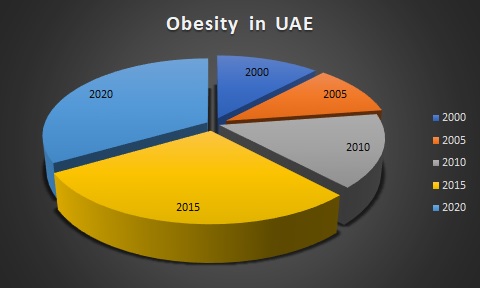
As per the World Health Organization, grown-up mean BMI levels of 22-23 kg.m2 are found in Africa and Asia, while levels of 25-27 kg.m2 are pervasive across North America, Europe, and in some Latin American, North African and Pacific Island nations. BMI increments among moderately aged elderly individuals, who are at the greatest risk of health complications. In countries undergoing nutrition transition, overnutrition often coexists with under nutrition. The increasing rate of obesity among children provides significant opportunities for growth of this market. According to the Institute of Health Metrics and Evaluation, about 30.0% of the global population is either obese or overweight.
The UAE is working on a strategy to combat rising obesity rates and related health problems with the help of an international health organisation. The UAE records one of the highest rates of obesity in the world, higher than the US. It is blamed on a sedentary lifestyle and easy access to food high in fat and calories. It also has one of the highest rates of diabetes, one of many obesity-related diseases. Bad diet and lack of physical exercise were causing a wide range of health problems.
Major Associations in the World·
- All India Association for Advancing Research in Obesity
- The Philippine Association for the Study of Overweight and Obesity
- The Egyptian Medical Association for the Study of Obesity (EMASO)
- Hong Kong Association of Study of Obesity (HKASO)
- Diabetic Association of India
- All India Association for Advancing Research in Obesity (AIAARO)
- American Public Health Association
- National Lipid Association
- Malaysian Association for the Study of Obesity (MASO)
- California Medical Association Foundation
- This Stigma of Obesity - Association for Psychological Science
- Association for Physical Activity, Diet, and Obesity Measures
- Obesity - American Beverage Association
- Obesity Management Association (OMA)
- WHO | Obesity
- Associations of Physical Activity, Obesity, and Serum Lipids
- Associations of Obesity, Alcohol abuse and Smoking
- Associations between Short Sleep Duration and Central Obesity
- Dieticians Association of Australia
- Associations between Short Sleep Duration and Central Obesity
- Dieticians Association of Australia
- Association of Parental and Child Overweight and Obesity
- Association of Chronic pain and Obesity
- North American Association for the Study of Obesity Association for Nutrition
- Association of Obesity, Physical Activity and Cancer
- Associations of Urban Environment and Obesity
- Association of Perinatal Endocrinology and Metabolism (PEM)
- ICCA Association of Database Endocrinology
- Endocrinology Association of Naturopathic Physicians
- Public Health Association of Australia
- European Neuroendocrine Association
- American Association of Clinical Endocrinologists
- American Obesity Treatment Association
- Obesity Medicine Association
- World Obesity Federation
- American Obesity Association (AOA)
- Association for the Study of Obesity
- Childhood Obesity - American Heart Association
- All India Association for Advancing Research in Obesity
- American Medical Association
- American Obesity Treatment Association
- Associations of Television Content Type and Obesity in Children
- Social Science of Obesity
- European Association for the Study of Obesity: EASO
- American Obesity Association (AOA) – Obesity
- American Heart Association
- IFSO | Obesity & Bariatric Surgery
- Physical Activity and Obesity Association
- Association for Helicobacter Pylori and Obesity
- Association for Family Income and Children's Physical Fitness
- Obesity Research | Canadian Diabetes Association
- Indian Association of Endocrine Surgeons (IAES)
- European Association for the Study of Obesity (EASO)
- International Association for the Study of Obesity (IASO)
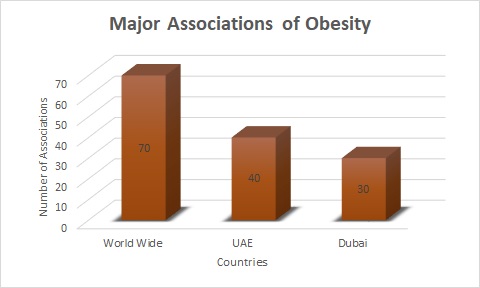
Major Hospitals around the worldwide associated with Obesity.
- UR High Land Medicine Hospital
- Stanford Health Care
- H&HN Hospitals & Health Networks
- NH Narayana Health
- Texas Heart Institute
- University of Rochester Medical Center
- OWH Office on Women’s Health
- Central Intelligence Agency
- Encyclopedia.com
- Massachusetts General Hospital
- Cleveland Clinic
- UCSF Medical Center
- Johns Hopkins Hospital
- Northwestern Memorial Hospital
- Brigham and Women’s Hospital
- Better Health
- Chestnut Hill Hospital
- Laney Hospital & Medical Center
- University of Maryland Medical Center
- BAPEN Advancing Clinical Nutrition
- SHARP Health Plan
- American Diabetes Association
- Heath & Social Care Information Centre
- MAYO Clinic
- Boston Children’s Hospital
- Cleveland Clinic
- Holy Cross Hospital
- Henry Ford Macomb Hospitals
- Mississippi State Department of Health
- Johnson Country Hospital
- University of Miami Hospital
- UR High Land Medicine Hospital
- Stanford Health Care
- H&HN Hospitals & Health Networks
- NH Narayana Health
- Texas Heart Institute
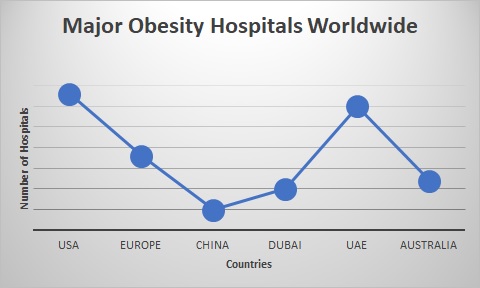
Related Conferences: Obesity Conference | Endocrinology Conference | Childhood Obesity | Obesity Congress | Bariatric Therapy | Genetics of obesity | Obesity Conference Events | 2018
25th Global Summit on Human Metabolic Health – Diabetes, Obesity and Metabolism September 6-8, 2018 Dubai, UAE
International Conference on Obesity and Chronic Disease October 15-16, 2018 Dubai, UAE
Global Meetings on Diabetes and Endocrinology July 25-26, 2018 Kuala Lumpur, Malaysia
19th World Obesity Congress July 10-11, 2018 Bangkok, Thailand
11th International Conferences Childhood Obesity and Nutrition March 15-16, 2018 Barcelona, Spain
3rd International Conferences on Metabolic and Bariatric Surgery March 15-16, 2018 Barcelona, Spain
3rd International Conferences on Endocrinology and Metabolic Syndrome June 28-29, 2018 Amsterdam, Netherlands
20th Global Obesity Meetings August 24-25, 2018 Singapore
28th World Congress on Diabetes, Obesity & Heart August 20-21, 2018 Tokyo, Japan
17th World Congress on Obesity & Nutrition September 21-22, 2018 Osaka, Japan
3rd International Conferences on Obesity and Chronic Diseases July 23-25, 2018 Los Angeles, CA, USA
2nd International Conferences on Obesity and Diabetes May 14-16, 2018 Melbourne, Australia
European Conference on Obesity and Eating Disorder April 12-13, 2018 Amsterdam, Netherlands
3rd International Conferences on Metabolic and Bariatric Surgery March 15-16, 2018 Barcelona, Spain
16th World Conferences on Obesity and Metabolic Surgery Society of India (OSSI) February 22-24, 2018 Chennai, India
25th European Congress on Obesity May 23-26, 2018 Vienna, Austria
20th International Conferences on Obesity May 14-15,2018 London, United Kingdom
9th British Conferences on Obesity and Metabolic Surgery Society January 25-26,2018 Telford, UK
11th Edition of International Conferences on Endocrinology and Diabetology August 9-10, 2018 Madrid, Spain
Related Societies:
USA:
Europe:
Asia:
Middle East:
Obesity Meeting 2017
We would like to thank all of our wonderful keynotes, speakers, conference attendees, students, associations, media partners, exhibitors and guests for making Obesity Meeting 2017 a successful event.
With the overwhelming success of the previous conferences, Conference series hosted the “14th Global Obesity Meeting on Obesity” during October 23-24, 2017 at JW Marriott, Dubai, UAE with the theme “Improving the Scientific rigor in Obesity research” was a great success, where eminent keynote speakers from various reputed institutions and organizations with their resplendent presence addressed the gathering.
Benevolent response and active participation was received from the renowned experts and Editorial Board Members of Conference series Journals as well as from the Dietitians, Nutritionists, researchers, students and leaders in Obesity, who made this event successful.
The Conference was carried out through various informative and cutting edge sessions, in which the discussions were held on the following thought provoking and cerebrating scientific tracks:
- Obesity
- Obesity Causes
- Consequences of Obesity
- Childhood Obesity
- Endocrinal and Hormonal Obesity
- Obesity and Cancer
- Obesity and Diabetes
- Genetics of Obesity
- Obesity during Pregnancy
- Control of Obesity
- Weight Management
- Advanced Treatment for Obesity
- Clinical Research and Interventions
- Counselling Studies for Obesity
- Anti-Obesity Drugs
- Obesity in Real Life
The conference was moderated by Suzan Nashashibi from Suzan Nashashibi Nutrition Consultancy, Jordan
The conference was embarked with an opening ceremony followed by lectures delivered by members of the Keynote forum. The adepts who promulgated the theme with their exquisite talk were:
- Edward Laskowski, from Mayo Clinic, USA
- Rola Arab from RA Consultancy, Belgium
All the above mentioned Keynote speakers gave their energetic and fruitful contributions and special thanks to our Honorable Moderator Suzan Nashashibi from Suzan Nashashibi Nutrition Consultancy, Jordan for her remarkable contribution towards smooth functioning at Obesity Meeting 2017
Conference Sessions Chairs:
- Daniel W Jones, from University of Mississippi Medical Center, USA
- Vaclav Bunc, from Charles University, Czech Republic
ME Conferences offers its heartfelt appreciation to Societies and Organizations includes Allied Academies, Andrew John Publishing Inc., New York Private Equity Forums and is also obliged to the Organizing Committee Members, adepts of field, various outside experts, company representatives and other eminent personalities who interlaced with Conference series in supporting and making the conference never before one.
Your rejoinder is our inspiration; keeping this motto in mind and being witnessed the triumph of Obesity Meeting 2017, ME Conferences is delighted to announce the next event. Mark your calendars for the upcoming extravaganza, " Middle East Obesity, Bariatric Surgery and Endocrinology Congress " to be held during June 25-26, 2018 at Dubai, UAE.
For details Visit: https://obesity-middleeast.conferenceseries.com/
Conference Highlights
- Obesity and Its Causes
- Childhood Obesity and Effects
- Obesity During Pregnancy
- Genetics of Obesity
- Health, Behavior & Environment
- Obesity and Nutrition
- Obesity and Diabetes
- Weight Management
- Yoga and Neuropathy
- Bariatric Surgery in Infertility
- Bariatric Therapy
- Advanced Treatment for Obesity
- Endocrinology
- Endocrine Regulation
- Paediatric Endocrinology
- Clinical Endocrinology & Specialized Topics in Clinical Endocrinology
- Obesity and Cardiovascular Disease
- Neuroendocrinology
- Obesity and Cognitive Function
- Gastroesophageal Reflux Disease(GERD)
To share your views and research, please click here to register for the Conference.
To Collaborate Scientific Professionals around the World
| Conference Date | June 25-26, 2018 | ||
| Sponsors & Exhibitors |
|
||
| Speaker Opportunity Closed | Day 1 | Day 2 | |
| Poster Opportunity Closed | Click Here to View | ||
Useful Links
Special Issues
All accepted abstracts will be published in respective Our International Journals.
- Journal of Obesity & Weight Loss Therapy
- Endocrinology & Metabolic Syndrome
- Journal of Nutritional Disorders & Therapy
Abstracts will be provided with Digital Object Identifier by









